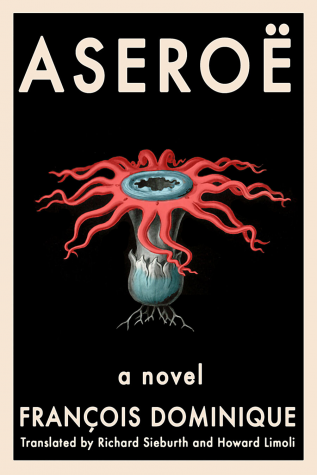The Foreword Book Club: Aseroe by Francois Dominique
The Foreword Book Club is back! The first reading recommendation of the year is a fresh and offbeat novel as atypical as the circumstances of today, perfect for those looking for an immersive escape.
Dominique’s novel, Aseroe, is a highly unusual work that leaves the reader with a bizarre outlook on life. Finishing Aseroe left me feeling quizzical and enlightened. The author’s insight in this work is unparalleled and at times confusing, but its value is in its uniqueness. The book is the perfect fit for readers seeking a quick read that will stick with you for days after absorbing the last page.
The book in question follows a mysterious and perhaps unreliable narrator’s quest to seek out unusual species of fungi, which he uses as a catalyst to attempt to understand his existence.
Seems odd right? This is only the beginning of what turns out to be a rabbit hole descent to the freakishly inexplicable. Beyond the first purpose, any sort of worthwhile takeaway is entirely dependent on the views of the reader. I think — if communicated effectively — this is a marker of truly good writing.
In my perspective the book tries to present a philosophy that proves that language is not a necessary part to the process of understanding. Or rather, it seeks to advocate for a world where the way we use language has no effect on the thing that is named itself. According to Dominique, language is subjective and isolated. Alternatively put, recall the words of the infamous bard: “A rose by any other name would smell as sweet.” The interesting thing about this novel though, is that the rose is a foul looking mushroom, and it does not smell sweet at all. This mushroom is the namesake of Dominique’s book, the aseroe rubra.

(goodreads.com)
His obvious passion for these plants is as rare as some of the mushrooms themselves, and this deep enthusiasm is contagious. Dominique goes into great detail to describe the uncommon aseroe rubra, a strongly smelling and foreign looking fungi known for its pink starfish-like tentacles. The thorough description, paired with rich metaphors, inspires mindfulness in the reader. Such an intimate look at something naturally occurring has the effect of causing the reader to seek and appreciate rarity in their own everyday lives.
In addition to providing a sensory experience through commentary about a mere mushroom, the novel goes on to describe other, seemingly random anecdotes and accounts to support its theories. Without giving too much away, Dominique alludes to anything from bookkeeping ledgers to personal letters to Shakespearian plays. The progression of ideas is by no means coherent, but that is what makes this novel so refreshing.
In hindsight, the experience of reading Aseroe can be frustrating. This is due to the overwhelmingly whimsical presentation of ideas. The narrator hops from idea to idea in a way that makes the reader question his sanity; a typical writer would attempt to move chronologically so that their writing is most understandable. Dominique doesn’t really do this, but rather seems to write for himself. Despite this arguable flaw, the writing style is sophisticated but still accessible.
All in all, Aseroe is an excellent choice of read to switch things up and to taste something unorthodox. It will likely be immediately evident to the reader whether the book is for them or not, but any writing that helps its audience refine its tastes has potential. An open mind is all that is needed to embark on the adventure of reading Dominique’s book, and it is by all means an adventure!






